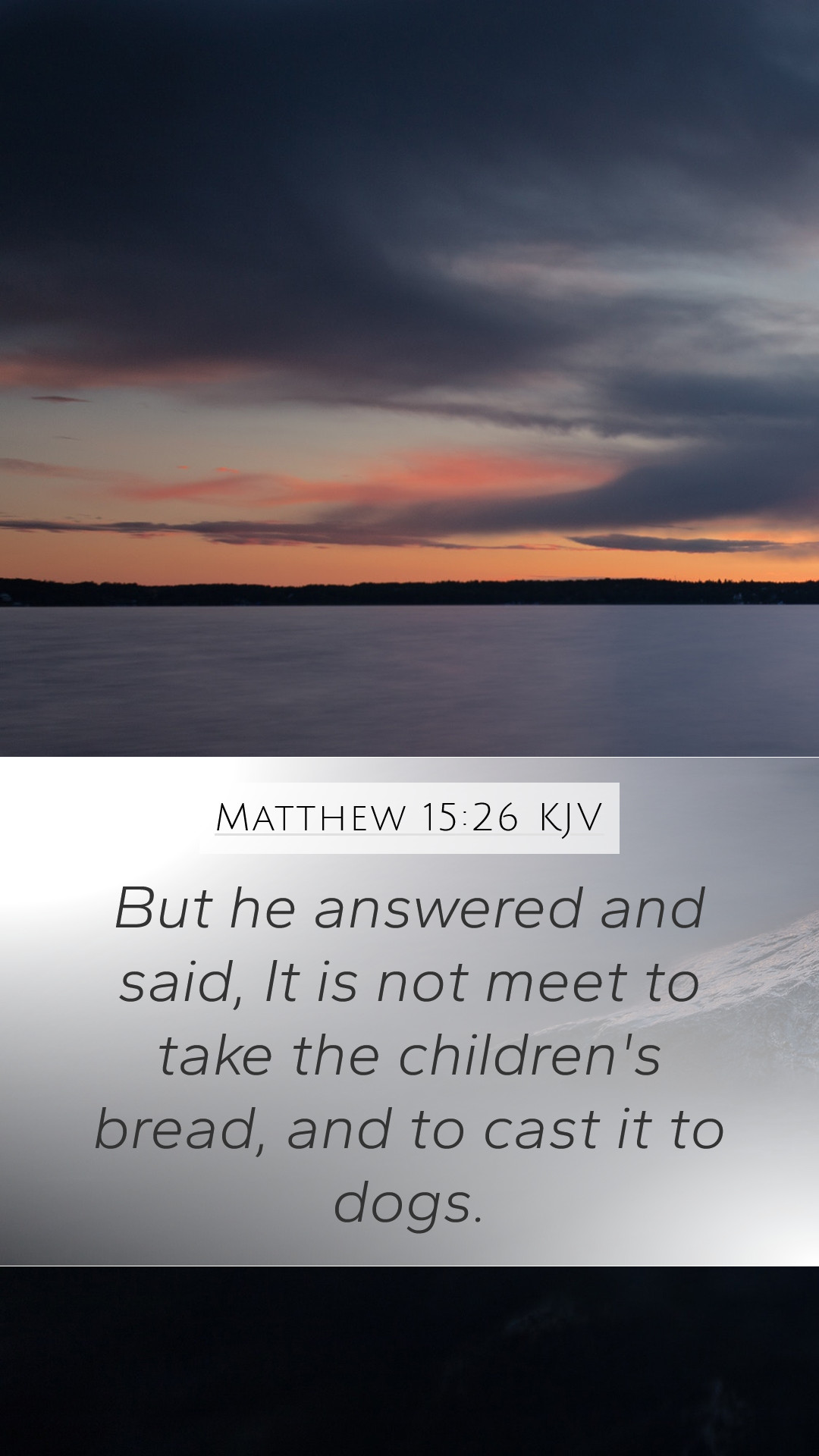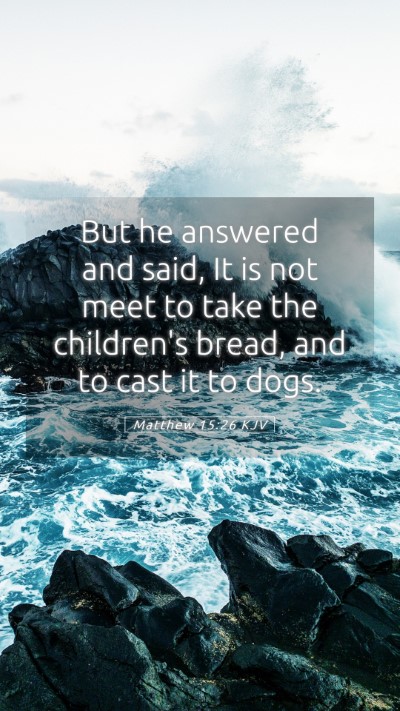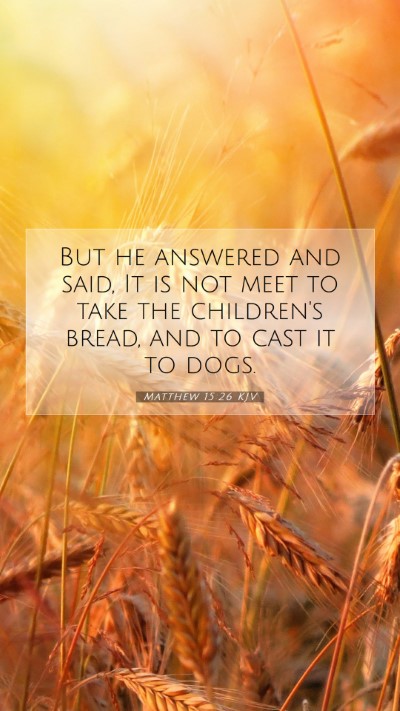Understanding Matthew 15:26
Matthew 15:26 states, "But He answered and said, 'It is not good to take the children's bread and throw it to the dogs.'" This verse captures a moment in Jesus' ministry emphasizing the nature of His mission and the extension of grace beyond Israel.
Context and Background
In this passage, Jesus discusses the ministry to the Gentiles during a conversation with a Canaanite woman who seeks healing for her demon-possessed daughter. This interaction occurs amidst Jesus' ministry primarily aimed at the Jewish people, highlighting a critical turning point where the message of God's grace begins to extend to all mankind.
Verse Interpretation
The phrase "children's bread" refers to the blessings and revelations meant for the Israelites, while "dogs" is an analogy for Gentiles or outsiders.
- Matthew Henry notes that Jesus' response was not meant to insult but rather to test the woman's faith and determination.
- Albert Barnes emphasizes that Jesus does not deny the woman's request but points to the order of priorities in divine grace.
- Adam Clarke explains that this exchange serves to highlight God's larger plan, which includes mercy for the Gentiles, and ultimately signifies inclusivity in God's kingdom.
Key Themes and Insights
- Faith and Persistence: The woman's unwavering faith serves as a demonstration that true belief can transcend social and cultural barriers.
- God’s Plan for Salvation: Although initially focused on Israel, this passage indicates the eventual inclusion of all nations in God’s redemptive plan.
- The Role of Gentiles: The metaphor of "dogs" is significant in understanding the societal views of the time; however, this episode indicates a shift towards inclusivity.
Application and Relevance
For modern readers, this verse challenges preconceptions about grace and worthiness. It teaches that divine mercy is not confined to a specific group but is available to all who seek it in faith.
Related Bible Verses
- Matthew 28:19: The Great Commission, highlighting the call to make disciples of all nations.
- Romans 1:16: Paul’s declaration of the gospel being for everyone, first to the Jew, then to the Gentile.
- Acts 10:34-35: Peter's realization that God shows no favoritism.
Commentary Conclusion
Matthew 15:26 serves as a powerful reminder of Jesus' mission and the nature of God's inclusivity. It offers profound Bible verse meanings that encourage deeper Bible verse interpretations and greater Bible verse understanding of grace and faith. This verse resonates with various Bible study insights, prompting discussions around God’s mercy, faith, and the scope of salvation.
Further Study Tools
For those looking to delve deeper into this and other Bible study resources, consider utilizing:
- Online Bible study platforms for congregational learning.
- Bible study guides that cover similar themes.
- Bible study courses focusing on New Testament teachings.
This structured exploration of Matthew 15:26 encourages not only a richer understanding of the text but also an application in life and faith, inviting scholars and laypeople to ponder the depths of divine revelation.


